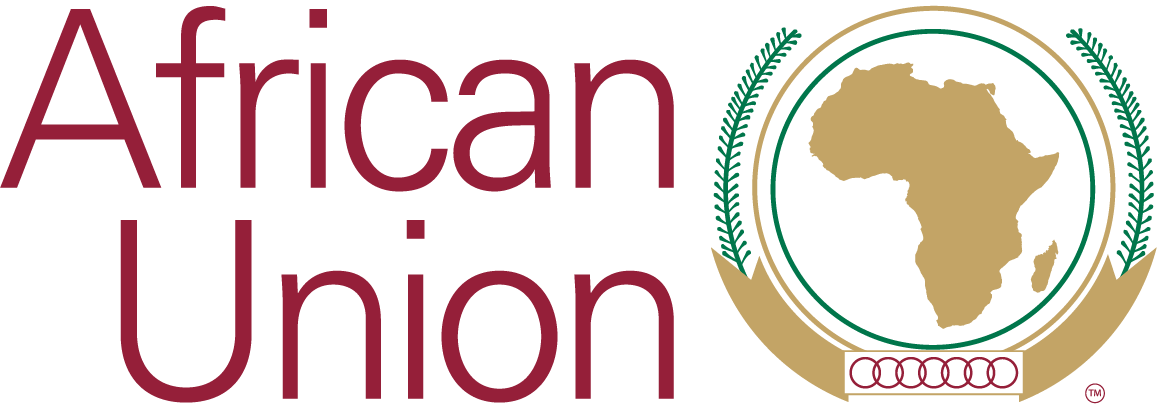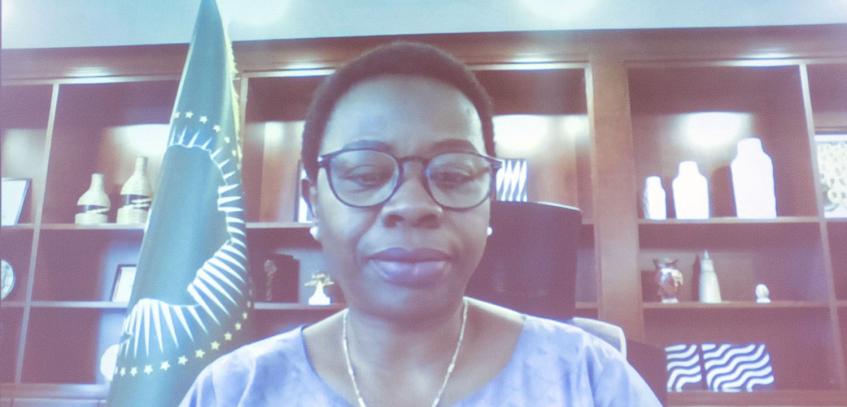The Deputy Chairperson of the African Union Commission, Her Excellency Dr Monique Nsanzabanganwa, has urgently appealed to the Pan-African Parliament to spearhead the push for AU Member States to provide sufficient resources for the Union’s critical programs.
Addressing members of the Pan-African Parliament on the state of financing of the Union during the Fourth Ordinary Session of the Pan-African Parliament, Dr Monique Nsanzabanganwa, urged the Pan-African Parliament through its inter-parliamentary roles and established structures—including the Conference of Speakers of African Parliaments and the Conference of Clerks and Secretary-Generals of National and Regional Parliaments—to champion a commitment by AU Member States to fully fund the African Union.
To secure predictable and sustainable financing for the African Union, the Deputy Chairperson of the African Union Commission further challenged the Pan-African Parliament to work closely with national parliaments and stakeholders on the following priorities: Advocate for the fulfilment of financial commitments: Actively advocate for adherence to the Johannesburg financing targets and fully implement the AU 0.2% import levy, ensuring Member States’ collective support for a self-reliant Union; Ensure timely and full contributions: Support initiatives to guarantee that Member States fulfil their assessed contributions in full and on time, upholding principles of capacity to pay, equitable burden sharing, and solidarity. Predictable funding is essential for the Union’s stability and effectiveness; and Strengthen Domestic Resource Mobilization: Encourage and facilitate efforts to enhance domestic resource mobilization, fostering the institutional capacity of Member States to generate and manage resources effectively, thereby supporting the Union’s financial sustainability.
“Let us work together to ensure that the Union is sustainably financed by Africans, for Africans.
The Africa We Want' and the Africa to be inherited by our children, an Africa where our people thrive, and our unity strengthens us,” she emphasized.
Contributing to the debate on the state of financing of the Union, Hon. Senator Danson Mungatana, the leader of the Kenya delegation to the Pan-African Parliament, called for stronger financial accountability within the African Union Commission, emphasizing the need for direct engagement with Pan-African Parliament committees to ensure oversight of member contributions. He questioned the lack of clarity on fund usage, stating, “When I give my money as a normal citizen, I would like to know how this money is spent.”
Hon. Mungatana also advocated for candidate accountability in upcoming AUC leadership transitions, urging that they come to have open dialogue with PAP MPs as it would boost public trust and enhance the integrity of the African Union.
Hon. Salek Abderrahman Musa (Western Sahara/Sahrawi Republic) expressed deep concern over the African Union’s shift to online interactions with the Pan-African Parliament, echoing Hon. Mungatana’s call for more direct accountability. Hon Musa questioned why AU commissioners no longer attend Pan-African Parliament sessions in person, recalling the days when “we used to come to this chamber, we used to receive the commissioners from the African Union.”
He argued that this move risks undermining the Pan-African Parliament’s importance as a core AU body. He urged AU leadership to prioritize face-to-face engagement, stressing that such interactions are vital for transparency and trust between the AU and PAP.
Current Funding State of the Union
In 2015, the Assembly of Heads of State and Government, meeting here in South Africa, adopted Decision 578, setting progressive targets to reach self-financing over five years:100% of the operational budget, 75% of the program budget, and 25% of the Peace Support Operations budget.
A subsequent decision in Kigali in 2016 instituted a 0.2% import levy as a resource mobilization mechanism to support Member States in meeting their contributions. The Assembly directed the Commission to reform the Union to ensure accountability and transparency in resource use, reducing dependency on external donors.
“Almost a decade since these historic decisions, the financial sustainability of the Union still calls for our collective efforts. We must congratulate Member States on meeting the first target of fully funded operational budget. However, their contribution in program budget, which rose from 6% in 2016 to 45% in 2019 has since been declining and stands at 9% in 2025 budget. This is far from the 75% envisaged,” Dr Monique Nsanzabanganwa pointed out.
She lamented that progress on the 25% target on peace support operations has been sporadic. “It was just above 4% in 2017, had declined to 3% in 2020, and nil between 2021 and 2023. It is in 2024 that an exceptional effort was made to the level of 11% of PSO needs. Unfortunately, for 2025 budget, the share of member states assessed contributions again dropped to nil”, she noted.
The Union has also underperformed on the 0.2% levy on eligible imports, with only 17 Member States who have implemented the levy since 2019. This situation challenges our commitment to a financially sustainable African Union funded and owned by Africans.
In 2021, a cap of US$250 million on Member States' assessed contributions was introduced as a temporary measure to help Member States navigate the economic impacts of COVID-19. However, not only has this cap persisted beyond the pandemic, but contributions have also consistently fallen short, stabilizing around US$200 million.
Compounding this shortfall, the Union's operational needs have grown, particularly with the establishment of essential offices such as the AfCFTA Secretariat and the Africa CDC, demanding more significant financial commitment.








